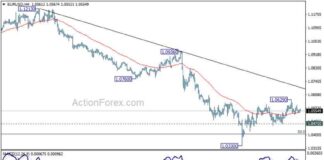**The Growing Concern of Pension Nationalism: Challenges and Solutions**
As countries around the world grapple with economic uncertainty and fiscal challenges, the issue of pension nationalism has emerged as a significant concern. The concept of pension nationalism refers to the trend of prioritizing domestic investment over international opportunities in an effort to stimulate economic growth and protect national interests. While this approach may seem appealing on the surface, experts warn that pursuing domestic investment at the expense of potential returns could have serious consequences for pension funds and retirees.
**The Impact of Pension Nationalism on Retirement Savings**
One of the key arguments in favor of pension nationalism is the idea that directing funds towards domestic businesses will help stimulate economic growth and create jobs. Proponents argue that by investing in local companies, pension funds can support the development of critical industries and contribute to the overall prosperity of the country. However, critics warn that this approach could limit the diversification of investment portfolios and expose pension funds to greater risks.
When pension funds prioritize domestic investment, they may miss out on valuable opportunities in international markets that offer higher returns and greater stability. By limiting their investment options to a narrow pool of domestic companies, pension funds could be putting retirees’ savings at risk and compromising their ability to generate sufficient returns over the long term. This narrow focus on domestic investment could also hinder the growth of pension funds and limit their ability to meet the financial needs of retirees.
**Challenges Faced by Pension Funds**
In addition to the potential impact on investment returns, pension nationalism poses other challenges for pension funds. By prioritizing domestic investment, pension funds may be more vulnerable to political and economic instability within their home country. This could expose retirees’ savings to greater volatility and increase the likelihood of financial losses.
Furthermore, the emphasis on domestic investment could also limit the opportunities for pension funds to access innovative industries and emerging markets that offer the potential for high growth and returns. By restricting their investment options to domestic companies, pension funds may miss out on valuable opportunities to diversify their portfolios and mitigate risk.
**Finding a Balance: Solutions to Address Pension Nationalism**
While the desire to support domestic businesses and stimulate economic growth is understandable, it is important for pension funds to find a balance between domestic and international investment. By diversifying their portfolios and exploring opportunities in both domestic and international markets, pension funds can maximize their returns and mitigate risks.
One potential solution to address the challenges of pension nationalism is for pension funds to adopt a more strategic and diversified approach to investment. By conducting thorough research and analysis, pension funds can identify opportunities in both domestic and international markets that align with their investment objectives and risk tolerance. This approach can help pension funds optimize their returns and ensure the long-term financial stability of retirees.
Another key solution is for policymakers and regulators to provide guidance and support for pension funds as they navigate the complexities of domestic and international investment. By creating a regulatory framework that encourages diversification and innovation, policymakers can help pension funds maximize their potential returns and protect retirees’ savings.
**Conclusion**
In conclusion, the rising threat of pension nationalism poses significant challenges for pension funds and retirees. While the desire to support domestic businesses and stimulate economic growth is commendable, it is important for pension funds to adopt a balanced approach to investment that considers both domestic and international opportunities. By diversifying their portfolios and exploring innovative industries and emerging markets, pension funds can maximize their returns and ensure the long-term financial stability of retirees. Policymakers and regulators also have a role to play in supporting pension funds as they navigate the complexities of domestic and international investment. By working together, stakeholders can address the challenges of pension nationalism and ensure the continued prosperity of retirement savings.

















